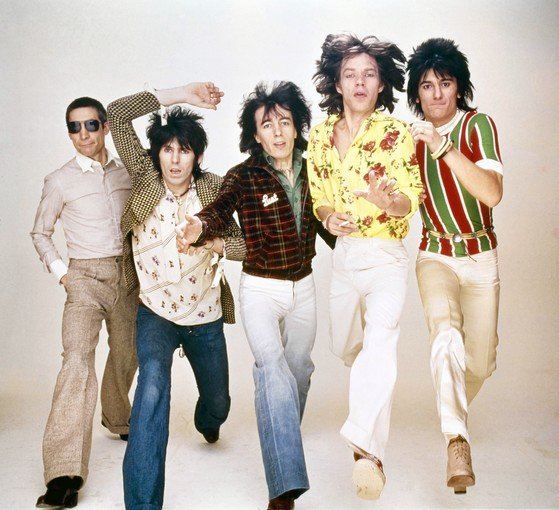|
Rolling Stones myth, fact swirl in 'Crossfire Hurricane'
Posted on: 11/25/12
'Crossfire Hurricane' on HBO has the Rolling Stones telling their own story in an energetic, streamlined form. If you needed another reminder of the implacability of time, the Rolling Stones are currently celebrating 50 years in show business — a fact that might blow the minds of people old enough to use the phrase "blow my mind" and at the same time mean less than nothing to people young enough to regard 50 years as an imponderable abstraction. As part of the band's several-pronged multimedia anniversary — a two-year party, dating either from the initial 1962 confluence of blues fans Brian Jones, Mick Jagger and Keith Richards or to the January 1963 addition of last original Stone Charlie Watts — HBO will premiere Thursday a newdocumentary, "Crossfire Hurricane." The title, taken from the song "Jumpin' Jack Flash," reflects the film's temperament: It pictures their life together as a swirling maelstrom that sucks them up out of the London clubs in the early '60s and spits them out, a decade and a half later, as the stadium attraction they remain to this day, when they feel like it. Director Brett Morgen (co-director, with Nanette Burstein, of the visually fanciful 2002 Robert Evans documentary "The Kid Stays in the Picture") begins with a series of voice-overs from his panel of somewhat contradictory narrators, as if to say, This cannot be definitive: "It's almost a fairy story, you know," says Keith. Charlie "can't remember much of it, to be honest" and Mick can remember some of it but says that it's all written down somewhere, and Bill Wyman, the last man to quit the Rolling Stones, quotes the old adage that one shouldn't "let the truth spoil a good story." Like the Evans film, which was a kind of illustrated memoir, "Crossfire Hurricane" relies almost exclusively on the voices of its subjects. (This is an authorized biography.) Given that there are seven of them, however, including former members Wyman and Mick Taylor and the late Jones, heard in archival clips, there is a certain amount of self-correction and myth-busting. The principals, who sat for a reported 80 hours of interviews, are heard but not, in their present forms, seen, avoiding the cognitive dissonance that results from the World's Greatest Rock & Roll Band also being perhaps its oldest. (Mick turns 70 next year; Charlie is 71, Wyman 76.) It is, for all its two and a half hours, a streamlined retelling, organized more around energy and atmosphere than facts and figures. (As have chroniclers before him, Morgen discerns in the Stones' clubhouse and career a dialogue between truth and fiction, playacting and authenticity, as embodied most obviously, though not categorically, in "Glimmer Twins" Mick and Keith, the theatrical superego and the dedicated id.) Some major events zip by in dependent clauses; some important supporting players, like pianist-turned-road manager Ian Stewart, might as well never have been born. The band's private lives, except as regards the unavoidable matter of drug use, do not come into it at all. But the essential essentials are essentially here. My quibbles with it as a film are minor. It feels a little visually overstuffed here and there and inevitably loses a little steam toward the end. But viewers without much prior knowledge of the band may well be intrigued; fans with too much knowledge may whine a little over what was left out, but should be pleased by what has made it in, and what they haven't seen or heard. There is a healthy amount of little-to-unseen footage, some alternate takes of famous songs, and at least one late-date revelation. From reupholsterers of American blues and R&B, to louche chroniclers of Swinging London, to revolutionists for the hell of it, to jet-set tax exiles, and finally to beloved old grandpas of rock — the irony of their evolution is not lost on them, that a band so perfectly expressive of its times now exists out of time, as perpetual purveyors of what might be called The Rolling Stones Experience. But the music, at least, has remained unruly. They may be an institution, but they remain just crummy enough to keep from ever seeming slick. "You can't be young forever," are the last words Mick speaks in the film, and are followed immediately by footage from the 2006 Beacon Theatre concerts Martin Scorsese shot for his "Shine a Light," as if to say: Not forever, no, but 50 years, just maybe. COMMENTS
Be the first to post a comment! Post A Comment:

|
.gif)



.jpg)

